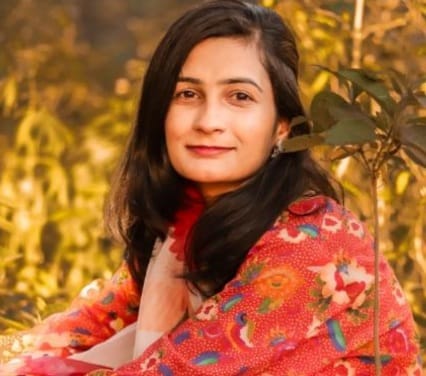Pregnancy-friendly voting spaces: Gaps in voting facilities
Misbah Bibi, 35 years a resident of Shakargarh says, she won’t be able to cast her vote to anyone, because she is just about to deliver her baby in the coming few days. She is afraid that there are any kind of facilities available for pregnant women at voting booths in the city. She says she cannot stand in lines for hours to vote as it is hard to manage her swollen legs and feet. “It is really hard for me to stand in the lines and wait for hours, this is the only reason I am not casting my vote”. Misbah says
Similarly, another woman, Humera, faces the same restriction. Although she voted in 2018. But this time her pregnancy and health are hindering her from casting her vote. So, she admits she might not go for voting due to insufficient facilities and accommodation. She says, ‘’The government should address rural women’s health-related barriers but, in our country, you have to stand for hours in queue and nobody cares. On election day everybody wants you to vote but after that, nobody asks you or comes to you. There are so many challenges for women in rural areas but nobody is going to address them. This is the job of government to aware women here’’ she adds
Women in rural areas are already deprived of basic health facilities. They are marginalized in such a way that they cannot make their own decisions. They lack support systems and face barriers to awareness where they hardly understand the political process. The marginalization of women politically in rural areas also appears from how major parties do not give them tickets.
In Narowal majority of tickets were given to men by major political parties. This is also one of the main reasons, rural women in all the villages navigate challenges at the polls. Their problems and hurdles are stigmatized so they are always behind the closed doors, not opening up and participating in political process.
There are two national seats in district Narowal NA 75 NA 76 and 5 provincial seats. PP54, PP55, PP56, PP57, and PP58.
According to the 2017 census, the total population of women in district Narowal is 0.855m.
According to election commission Narowal, there are about 666677 male votes in the district Narowal, 560761 female votes registered and a total of 1227438 total votes registered.
Similarly, there are about 137 male polling stations and 137 female polling stations, combining 555 and a total of 829 polling stations in Narowal. There are 1424 polling booths of male and 1287 polling booths of female in district Narowal.
In a recent election commission notice released on the 20th of December, it is written
“Pregnant women and women with infants, transgender, elderly and differently abled persons are entitled to have prioritized dealing” .However election commission office Narowal admits, “There is separate polling facilities for differently abled persons but there is no such kind of prioritized queues for pregnant women in the polling spaces. Not even for transgender.
they have not thought about this before, and there won’t be such kind of priorities queues for pregnant women on election day”. Election commission officer Narowal Muhammad Iqbal says, ‘’Pregnant women will vote in same queues where other women do vote’’. He also say, they haven’t raised any awareness regarding accommodation for the pregnant women on election day’’. But they can request for prioritize dealing of pregnant women. They will request for ground facilities for pregnant women”.
They also told; this situation is not just in Narowal but all overall, in Pakistan.
Recommendations
On the other hand, Dr Uzma says, election commission should encourage pregnant women rural areas for voting, because vote is the right of every individual in democratic countries. She tells, ‘’Election commission should address the issue of pregnant women on election day and provide them all kind of arrangements. They should collaborate with healthcare staff and arrange transport services for these women’’. A lot of women do not go for voting due to health complications. There will be also women who gave birth babies recently. So they will also avoid to vote. During and after pregnancy some women need care so creating pregnancy friendly spaces can insure inclusivity in voting spaces”. She adds
Activist Mehwish working for gender rights in Narowal says, “vote is right of every women but pregnant women and women with new babies are excluded from this right in rural areas. They don’t opt for vote on election day, and there are various reasons for that. First is women are stigmatized not go out of home in this situation. Secondly they have to be careful in this situation and most of them do not have proper knowledge what to do in this situation” she says, pregnant women should go for vote but unfortunately most of them will not exercise this right”. She also stressed, government to educate women and provides all kind of facilities on election day. “this is also a reason why turnout of women is low in some constituencies”. Mehwish adds

